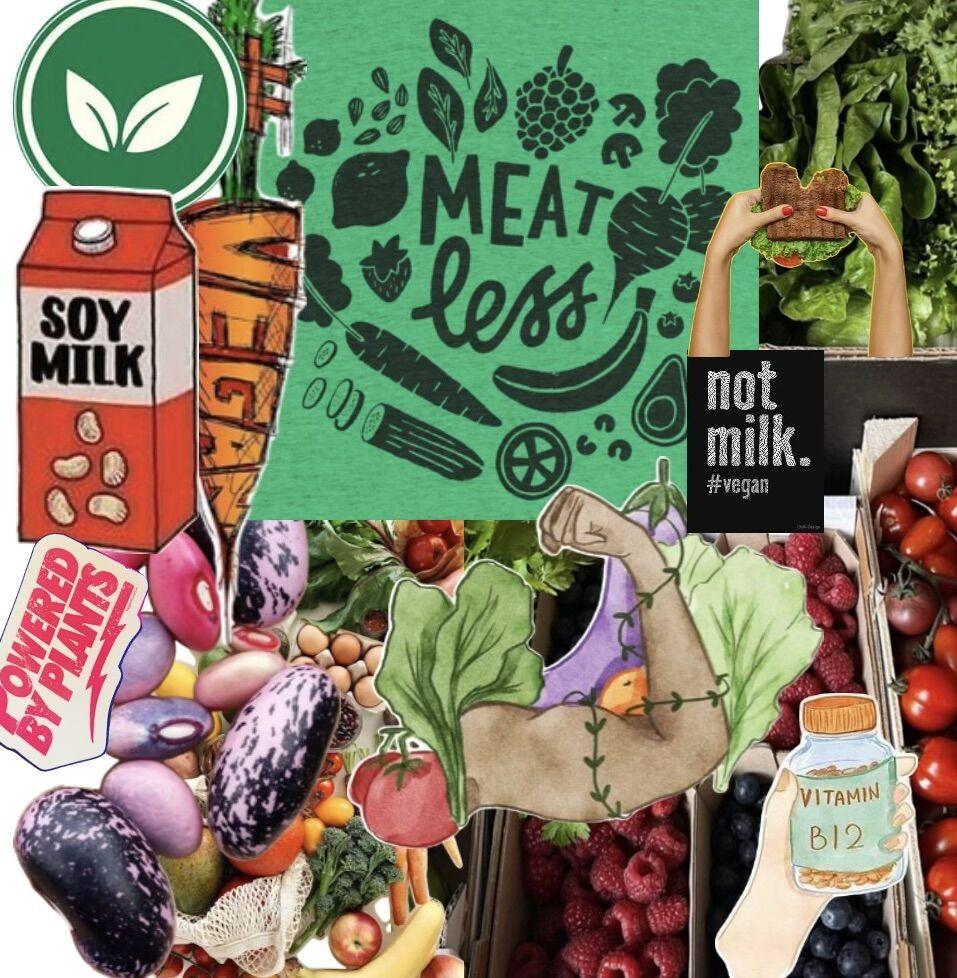‘Veganuary,’ a New Year’s challenge which began in the United Kingdom in 2014, encourages people to try the vegan diet for the first month of the year. In 2022, over 600,000 people participated in the challenge, and each year, increasingly more people try it out. Celebrities such as Billie Eilish and Paul McCartney endorse the program as well.
Veganuary is part of a “New Year, new me” push that comes around every January, when determined individuals plan to go to the gym every day and to cut out everything “bad” from their diet, which some say can be an unsustainable and unhealthy mindset.
Lauren Smith, Nutrition and Wellness director and a registered dietitian, said her biggest concern for those up to the Veganuary challenge is making sure you are getting enough nutrients with the diet change.
“I think it’s a really great idea to try a new lifestyle and just see what works for your body, but definitely do a little bit of research and make sure that you are eating enough,” Smith said. “So if you’re going to remove meat, make sure that you’re adding in other veggies, other sources of protein; make sure that you’re getting enough of the vitamins and minerals that you need.”
One motivator behind Veganuary is to decrease the stigma around the plant-based diet. It’s easy to write off something you’ve never tried, especially something as personal as your diet.
Julia Murphy, a first-year studying elementary education, has been vegan for six years. She follows the lifestyle predominantly for the animals, but health and environmental factors are reasons as well.
“I think that it just makes people intentional about what they are putting into their bodies, even if people don’t continue to be vegan,” Murphy said. “I think they [can become] more mindful about what they’re eating or maybe at least try to incorporate more plant-based eating if it’s not all of the way.”
A switch to a plant-based diet requires creativity in the variety of things you consume since you cannot rely on meat as a protein source. Past studies have shown vegans consume the highest amounts of dietary fiber and their digestion is improved because of a greater consumption of whole foods. Additionally, vegans eat the lowest amounts of saturated fats and have lower cholesterol and blood sugar levels in comparison to omnivores.
On the other hand, vitamin B12 deficiency is high among vegans since it is only found in animal-based foods. There can also be a lower satisfaction rate when eating plant-based due to the protein and calorie intake percentages. It can be difficult to dine out since it is the most restrictive of all plant-based diets, and can pose some social challenges as well — not everyone is open to accommodating or understanding certain preferences.
Luckily, NC State strives to provide a variety of plant-based options in the dining halls and establishments on campus. The chefs and dieticians on campus make sure to include foods that appeal to all students and make adjustments to the menu when students give feedback.
“From what I can tell it’s about 10% of the general population that has a food [restriction],” Smith said. “If we think about it, we have 11,000 meal plan holders. That’s probably 11 or 12 hundred students who have some type of restriction, so I know that not everyone reaches out to me, but it has definitely been increasing.”
These days, with more plant-based alternatives for animal products, such as Beyond Meat and plant milks, this challenge and diet can be easier than ever to try out. In NC State’s dining halls, veggie tenders, “chik’n” patties, and a wide variety of non-dairy milk all make frequent appearances.
However, these highly processed items are controversial in the mainstream media because of their history of genetically modified ingredients and long ingredient lists. Just because something is meatless doesn’t mean it is automatically healthier or environmentally friendly; it just comes down to what you pair it with.
Lexa McDermott is a first-year studying animal science and has been vegan for just under a year after being a vegetarian for three years prior. McDermott chose veganism because she was uncomfortable not knowing where her food, especially animal products, came from.
“Personally, I try to avoid those because in terms of the health benefits that I feel can be derived from the vegan diet,” McDermott said. “I think that the processed alternatives can be just as unhealthy as consuming animal products and to try to stick to more things like chickpeas, black beans and just a really wide variety of bean- and seed-based proteins, as opposed to the processed ones.”
A challenge like this may be a great one-month trial to learn something about your body and what you put in it.
“I think [Veganuary] would help them gain empathy and perspective … and give them just a better understanding of what it’s like to be on those diets,” McDermott said. “I think sometimes it can be easy to criticize people who cut certain food groups out for various reasons, but if you actually experience it yourself, it gives you a broader perspective of that.”
To learn more about NC State nutritional services, dining, programs, health and wellness, visit the NC State Nutrition Services website.








